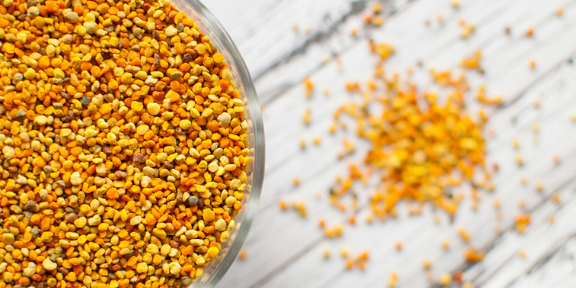
Bee Pollen: the Tiny but Mighty Superfood
Bee Pollen. Some of you have seen these little beauties in jars, touted as a super food and sold at farmers markets and health food stores. It looks interesting enough but what exactly is it, and why is it important to incorporate as a daily supplement?

First, let’s talk about what it is and why it was created by bees to begin with:
Pollen is collected by bees and packed with saliva and honey to create sacs (aka pollen pants) that they carry on their hind legs on their trek back to the hive.This they will ferment into “bee bread” which feeds the colony.

Beekeepers will attach a “comb” to the entrance which will gently rub some of the pollen off the worker bees’ legs and catch it in a trap. The Keeper will then collect the bee pollen and get it ready for packaging and sales.
What is so special about bee pollen?
- Helps with seasonal allergies: It aids in preventing the release of histamine which causes allergies but it is important to purchase it locally. Mix it with a spoonful of honey and you’re doing double duty on allergy prevention!
- Pumped with nutrients: essential amino acids, wide array of vitamins, flavonoids and fatty acids.
- Serious anti-inflammatory properties
How do you take pollen?
A little goes a long way. Adults should start at a ¼ tsp a day and work your way up to a max of 2 tbsp a day. For children, start them at just a few granules and children ages 2 to 6 should take max 1/3 an adult dose; children 6 to 12 should take max 1/2 an adult dose. Children 12 and over can take the low end of an adult dose.

Slightly nutty, a little bitter and sweet - it’s great on granola or yogurt, your favorite smoothie or baked goods. You can even eat a spoonful with some honey for a maximum health punch!
Keep in mind, if you are allergic to bees to please discuss this with your healthcare provider before taking this as a supplement.
Available at our farm shop for pickup only.

